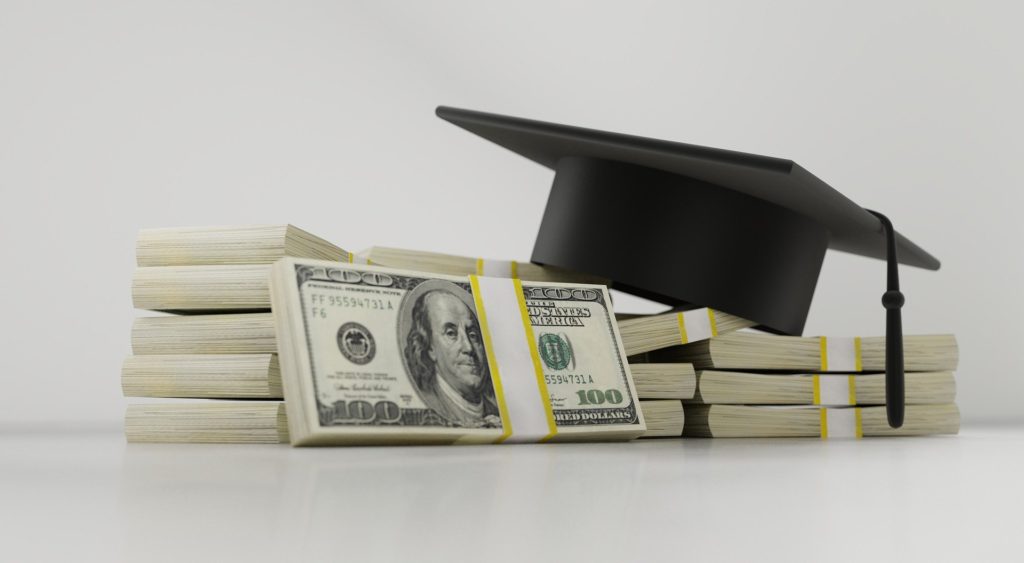President Joe Biden recently announced his long-rumored student loan forgiveness plan, a policy that will further burden South Carolina taxpayers and do nothing to address the fundamental problems behind rising college tuition.
Under the plan, single individuals making less than $125,000 qualify for $10,000 in federal student loan forgiveness, while Pell Grant recipients (based on parental income while a student is in college) qualify for $20,000. Married couples filing jointly qualify if they make less than $250,000.
Major issues with the plan
Of the roughly 258 million adults in the United states, around 44 million have outstanding federal student loans. Biden’s plan spreads that burden carried by a subset of Americans, who voluntarily accepted such debt, to the country as a whole.
The Committee for a Responsible budget gives the loan forgiveness plan a whopping price tag estimate of $360 billion.
At the individual level, the National Taxpayers Union Foundation found that the cancellation will cost the average taxpayer over $2,000. Indeed, the money being “cancelled” is money the government was at one point expecting to collect. Now it will be collected through other means like increased taxation and borrowing.
As for those who already paid their students loans, the plan offers nothing. Many will be left wishing they hadn’t paid their debt. Others who paid for school out of pocket may be frustrated they never took out a loan that would ultimately be forgiven.
Arguably, this is the most unfair element of the plan: it rewards a specific group of borrowers at a specific point in time – a group that effectively won the student loan lottery. The previous generation has already paid their debt, while the future generation – including many starting college classes right now – will take continue taking loans without such relief.
As previously noted, the individual income cap for loan forgiveness is $125,000. The median income in South Carolina, meanwhile, is just north of $49,000. Forcing working-class South Carolinians to pay for the student loans of a person earning $120,000 a year in Massachusetts is fundamentally unfair.
We estimate that around 18% of South Carolina adults have federal student loans. While the announcement is certainly good news for these individuals, as well as those with loans across the country, that debt should not become the responsibility of taxpayers at large.
Finally, the plan threatens to exacerbate already high levels of inflation. Larry Summers, economist and professor at Harvard University, said on Twitter, “Student loan debt relief is spending that raises demand and increases inflation.” According to our SCPC Voter Poll released in June, 82% of South Carolinians say inflation and the rising cost of goods has them concerned about paying their family’s bills.
Not what reform looks like
Not only is Biden’s loan forgiveness plan bad policy, it also fails to address the fundamental issues behind college debt.
In 1967, the annual cost of tuition to attend a public four-year university was around $300; by 2019, that price had surpassed $9,300. A major reason behind this price explosion? The federal student loan program. Indeed, while the program was perhaps well-intentioned, and has helped many Americans obtain college degrees, it has also flooded the higher education system with an almost unfathomable amount of money, driving up the cost of attendance.
That’s why loan forgiveness is merely a band-aid on a much larger issue. If Biden were serious, he would consider ending the program, or at least look at how it can be phased out.
Back at home, major change is also needed at the state level. State legislatures pump billions in tax dollars into the higher education system each year, yet tuition continues to rise. That, of course, should come as no surprise – colleges and universities have no incentive to keep costs low with a guaranteed (and rising) revenue stream. Instead, schools need more financial independence and accountability.
So, while there are meaningful steps that can be taken to address the rising cost of college, Biden’s latest announcement is not one of them.

